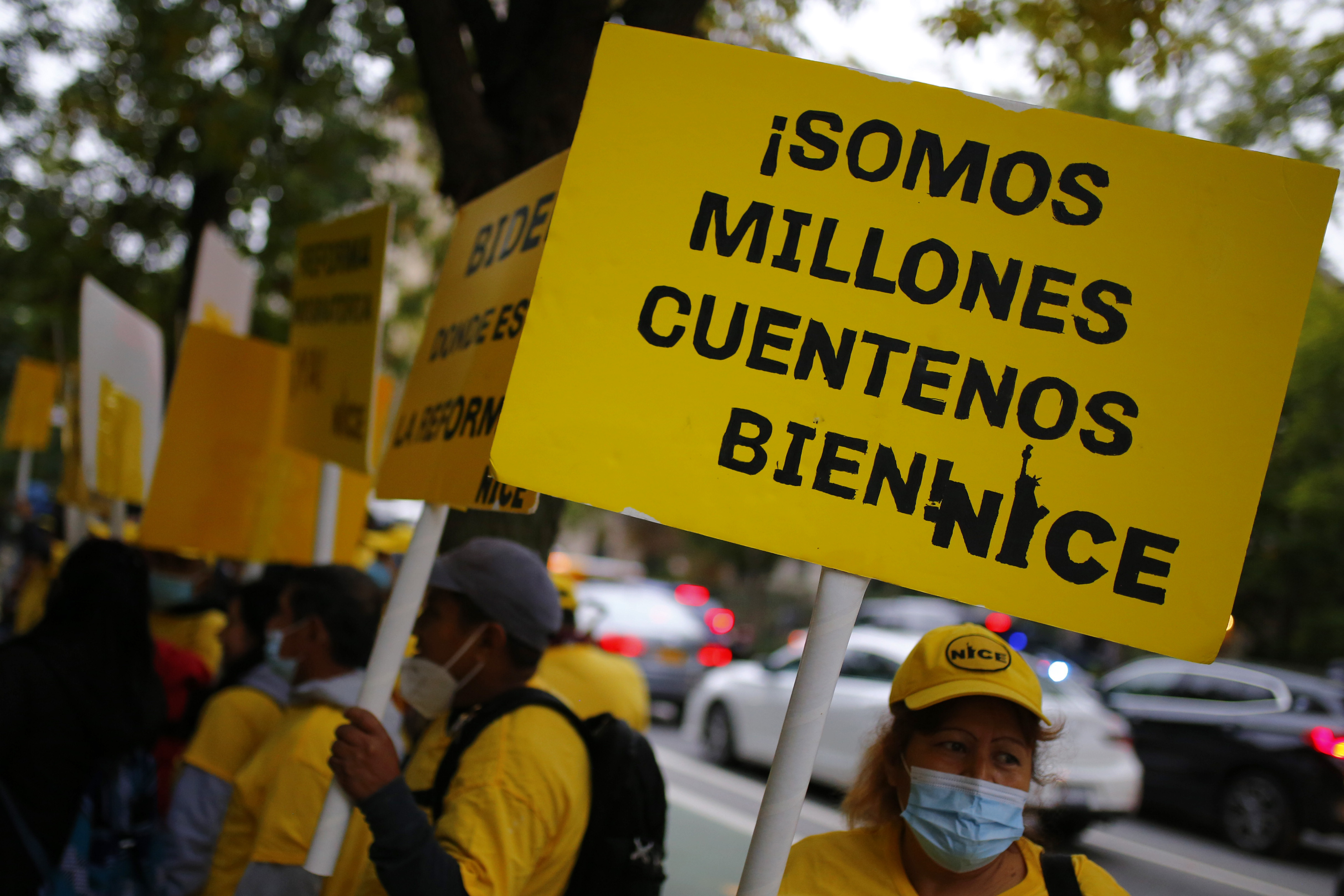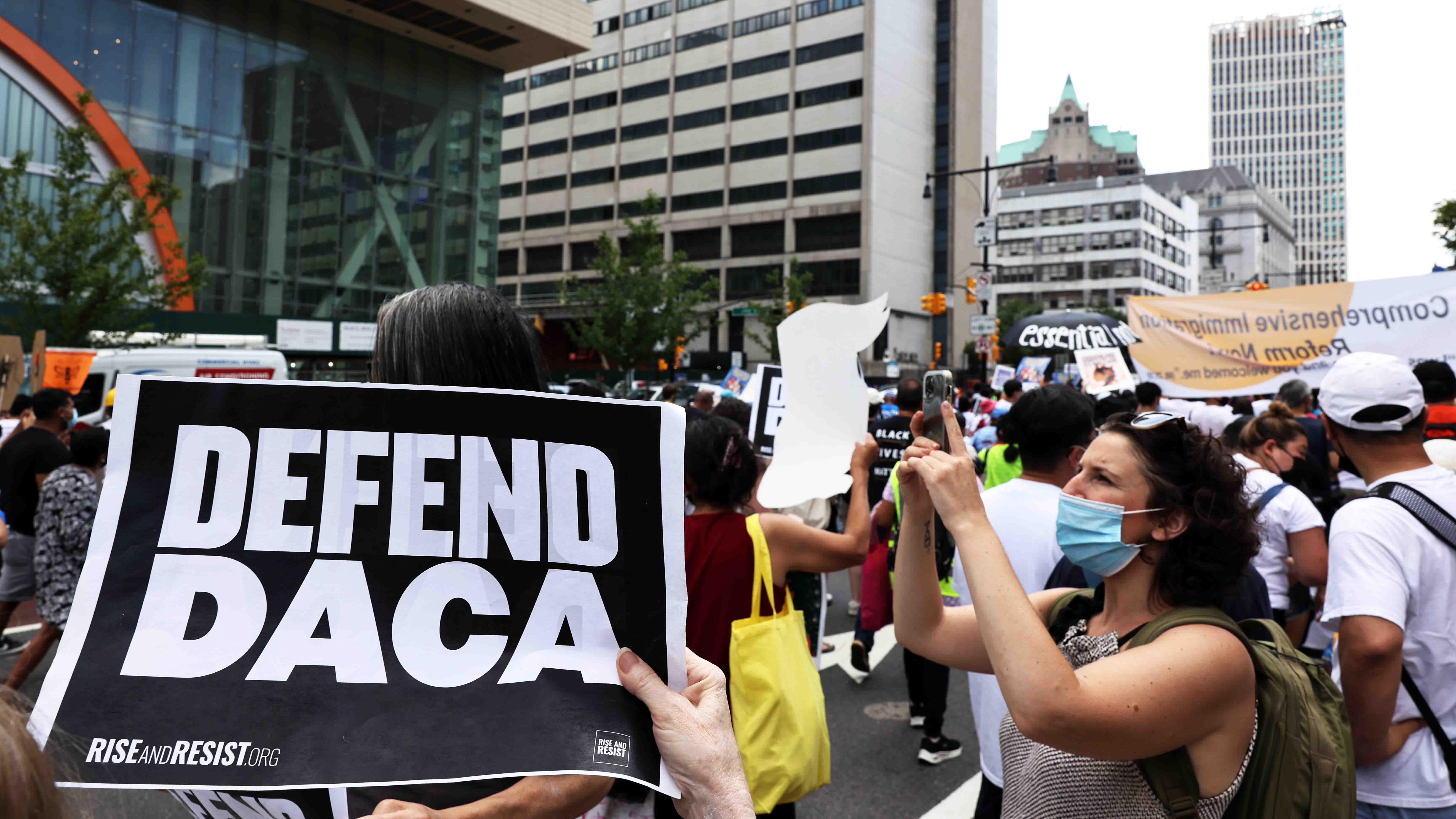
The Biden administration on Wednesday unveiled a regulation aimed at fending off legal challenges to a decade-old program that shields immigrants from deportation if they arrived as young children.
The rule isn't scheduled to take effect until Oct. 31 and its fate is tied to a lawsuit by Texas and other Republican-led states. The Deferred Action for Childhood Arrivals program has been closed to new registrants since July 2021 while the case winds its way through the 5th U.S. Circuit Court of Appeals.
Its 453 pages are largely technical and represent little substantive change from the 2012 memo that created DACA, but it was subject to public comments as part of a formal rule-making process intended to improve its chances of surviving legal muster.
Get Tri-state area news and weather forecasts to your inbox. Sign up for NBC New York newsletters.
President Joe Biden said he would do “everything within my power" to protect DACA recipients while renewing a call for legislation to provide them a pathway to citizenship.
“Dreamers are part of the fabric of this nation,” said Biden, using a common name for the young immigrants. “They’ve only ever known America as their home.”
The rule keeps eligibility criteria the same, disappointing some DACA advocates who wanted to allow more immigrants to qualify. Applicants must prove they arrived in the U.S. by age 16 before June 2007.
Immigration
More than 600,000 immigrants were enrolled in DACA at the end of March, about 80% from Mexico and many of the rest from El Salvador, Guatemala and Honduras, according to government figures.
In July, the New Orleans-based appeals court heard arguments that ending the Obama-era program would cruelly upend the lives of hundreds of thousands who have grown up to become tax-paying, productive drivers of the U.S. economy. Opponents argued that DACA has cost taxpayers for health care and other services.



